

Our Courses
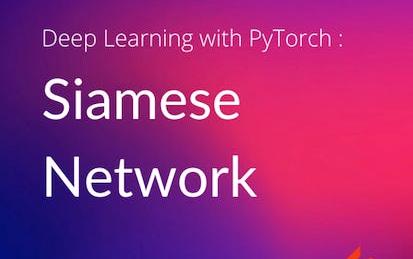
Deep Learning with PyTorch : Siamese Network
In this 2-hour long guided-project course, you will learn how to implement a Siamese Network, you will train the network with the Triplet loss function. You will create Anchor, Positive and Negative image dataset, which will be the inputs of triplet loss function, through which the network will learn feature embeddings. Siamese Network have plethora of applications such as face recognition, signature checking, person re-identification, etc. In this project, you will train a simple Siamese Network for person re-identification.
-
Course by

-
 Self Paced
Self Paced
-
 3 hours
3 hours
-
 English
English

ML Algorithms
ML Algorithms is the fourth Course in the AWS Certified Machine Learning Specialty specialization. This Course enables learners to deep dive Machine Learning Algorithms. This course is divided into two modules and each module is further segmented by Lessons and Video Lectures. This course facilitates learners with approximately 2:00-2:30 Hours Video lectures that provide both Theory and Hands -On knowledge. Also, Graded and Ungraded Quiz are provided with every module in order to test the ability of learners.
-
Course by

-
 Self Paced
Self Paced
-
 5 hours
5 hours
-
 English
English

Using SAS Viya REST APIs with Python and R
SAS Viya is an in-memory distributed environment used to analyze big data quickly and efficiently. In this course, you’ll learn how to use the SAS Viya APIs to take control of SAS Cloud Analytic Services from a Jupyter Notebook using R or Python. You’ll learn to upload data into the cloud, analyze data, and create predictive models with SAS Viya using familiar open source functionality via the SWAT package -- the SAS Scripting Wrapper for Analytics Transfer. You’ll learn how to create both machine learning and deep learning models to tackle a variety of data sets and complex problems.
-
Course by

-
 Self Paced
Self Paced
-
 18 hours
18 hours
-
 English
English

What is Data Science?
Do you want to know why data science has been labeled the sexiest profession of the 21st century? After taking this course, you will be able to answer this question, understand what data science is and what data scientists do, and learn about career paths in the field. The art of uncovering insights and trends in data has been around since ancient times. The ancient Egyptians used census data to increase efficiency in tax collection and accurately predicted the Nile River's flooding every year. Since then, people have continued to use data to derive insights and predict outcomes.
-
Course by

-
 Self Paced
Self Paced
-
 19 hours
19 hours
-
 English
English
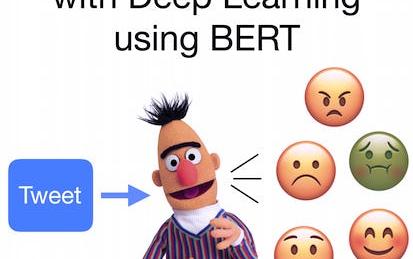
Sentiment Analysis with Deep Learning using BERT
In this 2-hour long project, you will learn how to analyze a dataset for sentiment analysis. You will learn how to read in a PyTorch BERT model, and adjust the architecture for multi-class classification. You will learn how to adjust an optimizer and scheduler for ideal training and performance. In fine-tuning this model, you will learn how to design a train and evaluate loop to monitor model performance as it trains, including saving and loading models.
-
Course by

-
 Self Paced
Self Paced
-
 3 hours
3 hours
-
 English
English

AI For Everyone
AI is not only for engineers. If you want your organization to become better at using AI, this is the course to tell everyone--especially your non-technical colleagues--to take.
-
Course by

-
 Self Paced
Self Paced
-
 11 hours
11 hours
-
 English
English

Unsupervised Learning, Recommenders, Reinforcement Learning
In the third course of the Machine Learning Specialization, you will: • Use unsupervised learning techniques for unsupervised learning: including clustering and anomaly detection. • Build recommender systems with a collaborative filtering approach and a content-based deep learning method. • Build a deep reinforcement learning model. The Machine Learning Specialization is a foundational online program created in collaboration between DeepLearning.AI and Stanford Online.
-
Course by

-
 Self Paced
Self Paced
-
 28 hours
28 hours
-
 English
English

Advanced Deep Learning Methods for Healthcare
This course covers deep learning (DL) methods, healthcare data and applications using DL methods. The courses include activities such as video lectures, self guided programming labs, homework assignments (both written and programming), and a large project. The first phase of the course will include video lectures on different DL and health applications topics, self-guided labs and multiple homework assignments. In this phase, you will build up your knowledge and experience in developing practical deep learning models on healthcare data.
-
Course by

-
 17 hours
17 hours
-
 English
English

Machine Learning: Concepts and Applications
This course gives you a comprehensive introduction to both the theory and practice of machine learning. You will learn to use Python along with industry-standard libraries and tools, including Pandas, Scikit-learn, and Tensorflow, to ingest, explore, and prepare data for modeling and then train and evaluate models using a wide variety of techniques.
-
Course by

-
 Self Paced
Self Paced
-
 38 hours
38 hours
-
 English
English

Machine Learning Foundations for Product Managers
In this first course of the AI Product Management Specialization offered by Duke University's Pratt School of Engineering, you will build a foundational understanding of what machine learning is, how it works and when and why it is applied. To successfully manage an AI team or product and work collaboratively with data scientists, software engineers, and customers you need to understand the basics of machine learning technology.
-
Course by

-
 Self Paced
Self Paced
-
 16 hours
16 hours
-
 English
English
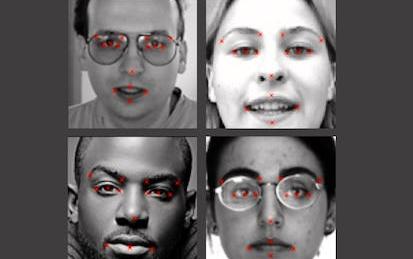
Emotion AI: Facial Key-points Detection
In this 1-hour long project-based course, you will be able to: - Understand the theory and intuition behind Deep Learning, Convolutional Neural Networks (CNNs) and Residual Neural Networks.
-
Course by

-
 Self Paced
Self Paced
-
 3 hours
3 hours
-
 English
English

TensorFlow Serving with Docker for Model Deployment
This is a hands-on, guided project on deploying deep learning models using TensorFlow Serving with Docker.
-
Course by

-
 Self Paced
Self Paced
-
 3 hours
3 hours
-
 English
English
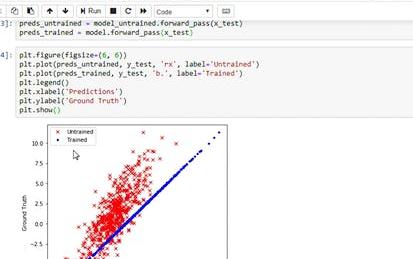
Linear Regression with Python
In this 2-hour long project-based course, you will learn how to implement Linear Regression using Python and Numpy. Linear Regression is an important, fundamental concept if you want break into Machine Learning and Deep Learning.
-
Course by

-
 Self Paced
Self Paced
-
 2 hours
2 hours
-
 English
English

Information Extraction from Free Text Data in Health
In this MOOC, you will be introduced to advanced machine learning and natural language processing techniques to parse and extract information from unstructured text documents in healthcare, such as clinical notes, radiology reports, and discharge summaries. Whether you are an aspiring data scientist or an early or mid-career professional in data science or information technology in healthcare, it is critical that you keep up-to-date your skills in information extraction and analysis.
-
Course by

-
 Self Paced
Self Paced
-
 24 hours
24 hours
-
 English
English

Browser-based Models with TensorFlow.js
Bringing a machine learning model into the real world involves a lot more than just modeling. This Specialization will teach you how to navigate various deployment scenarios and use data more effectively to train your model. In this first course, you’ll train and run machine learning models in any browser using TensorFlow.js. You’ll learn techniques for handling data in the browser, and at the end you’ll build a computer vision project that recognizes and classifies objects from a webcam. This Specialization builds upon our TensorFlow in Practice Specialization.
-
Course by

-
 Self Paced
Self Paced
-
 19 hours
19 hours
-
 English
English
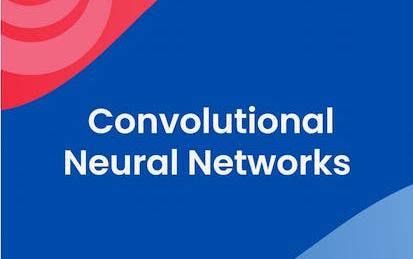
Natural Language Processing with Attention Models
In Course 4 of the Natural Language Processing Specialization, you will: a) Translate complete English sentences into Portuguese using an encoder-decoder attention model, b) Build a Transformer model to summarize text, c) Use T5 and BERT models to perform question-answering. By the end of this Specialization, you will have designed NLP applications that perform question-answering and sentiment analysis, and created tools to translate languages and summarize text! Learners should have a working knowledge of machine learning, intermediate Python including experience with a deep learning fra
-
Course by

-
 Self Paced
Self Paced
-
 35 hours
35 hours
-
 English
English
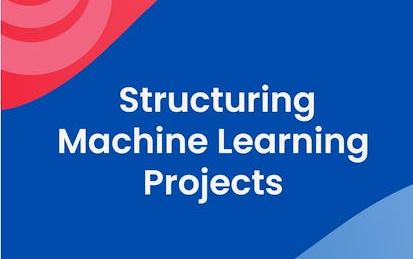
Data Pipelines with TensorFlow Data Services
Bringing a machine learning model into the real world involves a lot more than just modeling.
-
Course by

-
 Self Paced
Self Paced
-
 12 hours
12 hours
-
 English
English

Customising your models with TensorFlow 2
Welcome to this course on Customising your models with TensorFlow 2! In this course you will deepen your knowledge and skills with TensorFlow, in order to develop fully customised deep learning models and workflows for any application. You will use lower level APIs in TensorFlow to develop complex model architectures, fully customised layers, and a flexible data workflow.
-
Course by

-
 27 hours
27 hours
-
 English
English

Getting started with TensorFlow 2
Welcome to this course on Getting started with TensorFlow 2! In this course you will learn a complete end-to-end workflow for developing deep learning models with Tensorflow, from building, training, evaluating and predicting with models using the Sequential API, validating your models and including regularisation, implementing callbacks, and saving and loading models. You will put concepts that you learn about into practice straight away in practical, hands-on coding tutorials, which you will be guided through by a graduate teaching assistant.
-
Course by

-
 Self Paced
Self Paced
-
 26 hours
26 hours
-
 English
English

Natural Language Processing in TensorFlow
If you are a software developer who wants to build scalable AI-powered algorithms, you need to understand how to use the tools to build them. This Specialization will teach you best practices for using TensorFlow, a popular open-source framework for machine learning. In Course 3 of the DeepLearning.AI TensorFlow Developer Specialization, you will build natural language processing systems using TensorFlow. You will learn to process text, including tokenizing and representing sentences as vectors, so that they can be input to a neural network.
-
Course by

-
 Self Paced
Self Paced
-
 24 hours
24 hours
-
 English
English

Improving Deep Neural Networks: Hyperparameter Tuning, Regularization and Optimization
In the second course of the Deep Learning Specialization, you will open the deep learning black box to understand the processes that drive performance and generate good results systematically.
-
Course by

-
 Self Paced
Self Paced
-
 24 hours
24 hours
-
 English
English
Sequences, Time Series and Prediction
If you are a software developer who wants to build scalable AI-powered algorithms, you need to understand how to use the tools to build them. This Specialization will teach you best practices for using TensorFlow, a popular open-source framework for machine learning. In this fourth course, you will learn how to build time series models in TensorFlow. You’ll first implement best practices to prepare time series data. You’ll also explore how RNNs and 1D ConvNets can be used for prediction.
-
Course by

-
 Self Paced
Self Paced
-
 23 hours
23 hours
-
 English
English

Convolutional Neural Networks in TensorFlow
If you are a software developer who wants to build scalable AI-powered algorithms, you need to understand how to use the tools to build them. This course is part of the DeepLearning.AI TensorFlow Developer Specialization and will teach you best practices for using TensorFlow, a popular open-source framework for machine learning. In Course 2 of the DeepLearning.AI TensorFlow Developer Specialization, you will learn advanced techniques to improve the computer vision model you built in Course 1.
-
Course by

-
 Self Paced
Self Paced
-
 17 hours
17 hours
-
 English
English
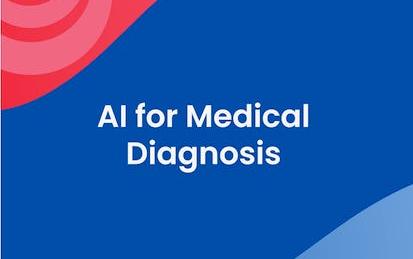
Neural Networks and Deep Learning
In the first course of the Deep Learning Specialization, you will study the foundational concept of neural networks and deep learning.
-
Course by

-
 Self Paced
Self Paced
-
 25 hours
25 hours
-
 English
English

Structuring Machine Learning Projects
In the third course of the Deep Learning Specialization, you will learn how to build a successful machine learning project and get to practice decision-making as a machine learning project leader.
-
Course by

-
 Self Paced
Self Paced
-
 7 hours
7 hours
-
 English
English



